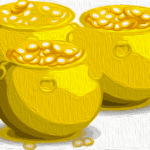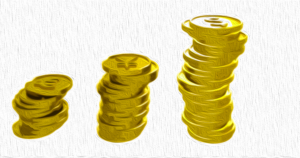For a financially secure retirement, we save for decades.
It can be both exciting and overwhelming when that time comes. It is an important decision to decide when you want to retire.
How to Decide When to Retire
Around 65 is the traditional retirement age. The best time to retire is not yet established. The decision about when to retire depends on each individual. Have you ever taken the time and thought about what retirement means for you?
The date you retire could have a significant impact on your retirement finances. These could include Social Security distributions and benefits from your previous employer.
How does age affect retirement savings income
There is no right age to retire. However, compounding returns will make you more financially secure if you begin investing sooner. You'll be able to save money by investing early. Your investments will accumulate more earnings in the stock exchange.
Even if you are not yet at retirement, there are incentives that will encourage you to start investing in your future. You can contribute more to your retirement if you're 50 or older through tax-advantaged retirement funds. The 2022 maximum annual employee contribution limit is $20,500 for 401(k), 403(b), and most 457 plans. However, there is a $6,500 catch up contribution for plan participants who are 50 years old or older.
Social security benefits are another way that age can affect your retirement. Social security benefits can be limited depending on your retirement date. A 2020 Social Security Administration Trustees Report states that by 2034, 78% of the scheduled benefits will be covered by payroll taxes, which is expected to provide most of the funds for social security benefits.
You should also wait until 70 to receive social security benefits. Social security benefits are eligible even though they start at age 62. Your monthly Social Security benefits will be 32% higher if you wait until 70 to take it. This is dependent on your health and longevity factors, which are unique to each person.
These are seven things to think about when you're trying to figure out the best time and age to retire.
1. Are you eligible for a pension?
It might be a smart idea to retire when you reach the anniversary of your first day at work, if you are employed by the government or another employer offering a defined-benefit pension plan. You'll get an additional year of service credit towards the calculation of your pension benefits.
2. Are you able to save any cash?
Financial advisors suggest that you save enough money in a liquid-cash account to cover your first few years of living expenses once you retire. If the market drops at the time you start your retirement, you don't need to draw from your retirement funds.
7 Ways to Save For Retirement
If you do not have cash savings, and you will need to begin withdrawing money from your retirement fund as soon as possible, you might consider retiring very early or late in the year. This will allow you to avoid having to withdraw money from your retirement account in an income year that could push you into a higher tax bracket.
3. Do you think about early retirement?
Although 65 is considered to be the official age for early retirement, many are choosing to retire earlier than that. You will pay a 10% penalty for any withdrawals made from a traditional IRA, 401k or other retirement account before you turn 59 1/2.
If you are 59 1/2 years old or older in the year that you plan to retire, it is best to wait until your birthday to start taking distributions from these accounts. This will avoid an early withdrawal penalty.
Continue reading: When can you withdraw from your 401k or an IRA penalty-free?
4. Are you required to receive minimum distributions (RMDs).
The Secure Act increased the minimum age that individuals can withdraw money from retirement accounts from 70.5 to 72 starting in January 2020. The bill also allows individuals who are working to continue contributing to traditional IRAs after the age of 70.5.
5. Do you plan to continue working part-time after your retirement?
Today, many people choose to work as freelancers or contractors to make extra money for retirement. Your Social Security benefit amount could be decreased if you work part-time and choose to begin receiving Social Security benefits prior to reaching full retirement age (FRA), which can vary depending on your birthyear.
You can:
- You must be at full retirement age by 2022. Your earnings for the month of January are less than $1,580 and you have not performed substantial self-employment services.
- You reach full retirement age by 2022. Your earnings must be $4,210 or lower and you have not performed substantial self-employment services.
If you are retiring before FRA, but anticipate earning more than $1,580 per month in income, and you will reach FRA sometime within the year that you plan to retire, it is best to wait until after your birthday to claim Social Security retirement benefits.
6. Are you a recipient of vacation pay?
Find out when your employer will pay you if you have accumulated a substantial amount of vacation pay. This vacation pay will be treated as earned income and subject to the earnings rule. It might be a good idea to wait until you have the funds to retire before applying for Social Security benefits.
Read More: At What Age Can You Get Social Security?
7. Are you going to turn 70 this year?
You can increase your monthly benefits by waiting until you reach FRA before you start receiving Social Security benefits. This is true up to age 70 when the benefits stop.
If you are planning to celebrate your 70th Birthday in the year that you retire, it is a good idea to consider retiring and applying for Social Security. You will no longer be eligible for Social Security and you can't delay retiring.
Our Take
Many factors go into choosing the right time of year for retirement. What is the process of retirement? Personal Capital's Retirement Planning can help you understand how retirement at different times may impact your savings.
For more information about your particular situation, we recommend speaking to your tax and financial advisors. These and other important retirement decisions can be guided by Personal Capital financial planners.
Find out more about our Wealth Management Services
Calculate Your Retirement Readiness Now
Frequently Asked Questions
How Do You Make a Withdrawal from a Precious Metal IRA?
First decide if your IRA account allows you to withdraw funds. After that, you need to decide if you want to withdraw funds from an IRA account. Next, make sure you have enough money in order for you pay any fees or penalties.
If you are willing to pay a penalty for early withdrawal, you should consider opening a taxable brokerage account instead of an IRA. This option will require you to pay taxes on the amount that you withdraw.
Next, figure out how much money will be taken out of your IRA. This calculation will depend on many factors including your age at the time of withdrawal, how long the account has been in your possession, and whether you plan to continue contributing towards your retirement plan.
Once you determine the percentage of your total saved money you want to convert into cash, then you need to choose which type IRA you will use. Traditional IRAs allow you to withdraw funds tax-free when you turn 59 1/2 while Roth IRAs charge income taxes upfront but let you access those earnings later without paying additional taxes.
After these calculations have been completed, you will need to open a brokerage bank account. Brokers often offer promotional offers and signup bonuses to encourage people into opening accounts. However, a debit card is better than a card. This will save you unnecessary fees.
You will need a safe place to store your coins when you are ready to withdraw from your precious metal IRA. Some storage facilities will take bullion bars while others require you only to purchase individual coins. Either way, you'll need to weigh the pros and cons of each before choosing one.
Because you don't have to store individual coins, bullion bars take up less space than other items. You will need to count each coin individually. On the flip side, storing individual coins allows you to easily track their value.
Some people prefer to keep their coins in a vault. Some prefer to keep them in a vault. No matter what method you use, it is important to keep your bullion safe so that you can reap its benefits for many more years.
Which precious metals are best to invest in retirement?
It is gold and silver that are the best precious metal investment. Both are easy to sell and can be bought easily. You should add them to your portfolio if you are looking to diversify.
Gold: Gold is one the oldest forms currency known to man. It is very stable and secure. It is a good way for wealth preservation during uncertain times.
Silver: Silver has been a favorite among investors for years. It is an excellent choice for investors who wish to avoid volatility. Silver is more volatile than gold. It tends to rise rather than fall.
Platinium: Platinum is another form of precious metal that's becoming increasingly popular. Like gold and silver, it's very durable and resistant to corrosion. However, it's much more expensive than either of its counterparts.
Rhodium: Rhodium can be used in catalytic convertors. It is also used for jewelry making. It's also relatively inexpensive compared to other precious metals.
Palladium (or Palladium): Palladium can be compared to platinum, but is much more common. It's also much more affordable. It is a preferred choice among investors who are looking to add precious materials to their portfolios.
What are the benefits to having a gold IRA
The best way to save money for retirement is to place it in an Individual Retirement Account. It's not subject to tax until you withdraw it. You can decide how much money you withdraw each year. There are many types and types of IRAs. Some are more suitable for students who wish to save money for college. Others are designed for investors looking for higher returns. Roth IRAs permit individuals to contribute after the age 59 1/2. Any earnings earned at retirement are subject to tax. These earnings don't get taxed if they withdraw funds. This type of account might be a good choice if your goal is to retire early.
Because it allows you money to be invested in multiple asset classes, a ‘gold IRA' is similar to any other IRAs. Unlike a regular IRA that requires you to pay taxes on the gains you make while you wait to access them, a gold IRA does not have to do this. This makes gold IRA accounts excellent options for people who prefer to keep their money invested instead of spending it.
An additional benefit to owning gold through an IRA, is the ease of automatic withdrawals. You won't have the hassle of making deposits each month. To make sure you don't miss any payments, you can also set up direct deductions.
Finally, gold remains one of the best investment options today. Because it isn't tied to any particular country its value tends be steady. Even in times of economic turmoil gold prices tend to remain stable. Therefore, gold is often considered a good investment to protect your savings against inflation.
Is gold a good investment IRA option?
Any person looking to save money is well-served by gold. It's also a great way to diversify your portfolio. But gold is not all that it seems.
It has been used throughout the history of currency and remains a popular payment method. It's sometimes called “the world's oldest money”.
But gold, unlike paper currency, which is created by governments, is mined out from the ground. That makes it very valuable because it's rare and hard to create.
The supply and demand for gold determine the price of gold. If the economy is strong, people will spend more money which means less people can mine gold. The value of gold rises as a consequence.
On the other hand, people will save cash when the economy slows and not spend it. This leads to more gold being produced which decreases its value.
This is why investing in gold makes sense for individuals and businesses. If you have gold to invest, you will reap the rewards when the economy expands.
You'll also earn interest on your investments, which helps you grow your wealth. In addition, you won’t lose any money if gold falls in value.
Can I keep physical gold in an IRA?
Not just paper money or coins, gold is money. It's an asset that people have used for thousands of years as a store of value, a way to keep wealth safe from inflation and economic uncertainty. Investors today use gold to diversify their portfolios because gold is more resilient to financial turmoil.
Many Americans are now more inclined to invest in precious metals like gold and silver than stocks or bonds. While owning gold doesn't guarantee you'll make money investing in gold, there are several reasons why it may make sense to consider adding gold to your retirement portfolio.
Another reason is the fact that gold historically has performed better than other assets in times of financial panic. Between August 2011 and early 2013 gold prices soared nearly 100 percent, while the S&P 500 plunged 21 percent. Gold was one asset that outperformed stocks in turbulent market conditions.
Another benefit to investing in gold? It has virtually zero counterparty exposure. Your stock portfolio can fall, but you will still own your shares. You can still own your gold even if the company where you invested fails to pay its debt.
Finally, gold is liquid. This allows you to sell your gold whenever you want, unlike many other investments. You can buy gold in small amounts because it is so liquid. This allows you to take advantage of short-term fluctuations in the gold market.
How much should precious metals be included in your portfolio?
To answer this question, we must first understand what precious metals are. Precious Metals are elements that have a very high relative value to other commodities. This makes them highly valuable for both investment and trading. The most traded precious metal is gold.
There are also many other precious metals such as platinum and silver. The price of gold tends to fluctuate but generally stays at a reasonably stable level during periods of economic turmoil. It is not affected by inflation or deflation.
As a general rule, the prices for all precious metals tend to increase with the overall market. That said, they do not always move in lockstep with each other. For instance, gold's price will rise when the economy is weak, while precious metals prices will fall. Investors are more likely to expect lower interest rates making bonds less attractive investments.
Contrary to this, when the economy performs well, the opposite happens. Investors favor safe assets like Treasury Bonds, and less precious metals. They become less expensive and have a lower value because they are limited.
Diversifying across precious metals is a great way to maximize your investment returns. You should also diversify because precious metal prices can fluctuate and it is better to invest in multiple types of precious metals than in one.
Are You Ready to Invest in Gold?
It depends on how much you have saved and if gold was available at the time you started saving. You can invest in both options if you aren't sure which option is best for you.
You can earn potential returns on your investment of gold. This makes it a worthwhile choice for retirees.
Gold is more volatile than most other investments. This causes its value to fluctuate over time.
However, it doesn't necessarily mean that you shouldn't invest your money in gold. Instead, it just means you should factor the fluctuations into your overall portfolio.
Another advantage to gold is that it can be used as a tangible asset. Gold is more convenient than bonds or stocks because it can be stored easily. It can also be transported.
Your gold will always be accessible as long you keep it in a safe place. There are no storage charges for holding physical gold.
Investing in gold can help protect against inflation. You can hedge against rising costs by investing in gold, which tends to rise alongside other commodities.
A portion of your savings can be invested in something that doesn't go down in value. Gold tends to rise when the stock markets fall.
Gold investment has another advantage: You can sell it anytime. Just like stocks, you can liquidate your position whenever you need cash. You don't even need to wait for your retirement.
If you do decide to invest in gold, make sure to diversify your holdings. Do not put all your eggs in one basket.
Also, don't buy too much at once. Begin by buying a few grams. You can add more as you need.
It's not about getting rich fast. Instead, the goal is to accumulate enough wealth that you don't have to rely on Social Security.
And while gold might not be the best investment for everyone, it could be a great supplement to any retirement plan.
Statistics
- This is a 15% margin that has shown no stable direction of growth but fluctuates seemingly at random. (smartasset.com)
- (Basically, if your GDP grows by 2%, you need miners to dig 2% more gold out of the ground every year to keep prices steady.) (smartasset.com)
- If you take distributions before hitting 59.5, you'll owe a 10% penalty on the amount withdrawn. (lendedu.com)
- Instead, the economy improved, stocks rebounded, and gold plunged, losing 28 percent of its value in 2013. (aarp.org)
- Gold is considered a collectible, and profits from a sale are taxed at a maximum rate of 28 percent. (aarp.org)
External Links
bbb.org
law.cornell.edu
- 7 U.S. Code SS7 – Designation board of trade as contract marketplaces
- 26 U.S. Code SS 408 – Individual retirement accounts
cftc.gov
wsj.com
- Saddam Hussein's InvasionHelped Uncage a Bear In 90 – WSJ
- Want to Keep Gold in Your IRA at Home? It's Not Exactly Legal – WSJ
How To
Tips for Investing In Gold
One of the most sought-after investment strategies is investing in gold. Because investing in gold has many benefits. There are many ways to invest gold. Some people prefer to buy gold coins in physical form, while others prefer to invest in gold ETFs.
Before you purchase any type or gold, here are some things to think about.
- First, make sure you check if your country allows you own gold. If so, then you can proceed. You might also consider buying gold in foreign countries.
- Second, it is important to know which type of gold coin you are looking for. You can choose between yellow gold and white gold as well as rose gold.
- You should also consider the price of gold. It is best to begin small and work your ways up. It is important to diversify your portfolio whenever you purchase gold. You should invest in different assets such as stocks, bonds, real estate, mutual funds, and commodities.
- Lastly, you should never forget that gold prices change frequently. You need to keep up with current trends.
—————————————————————————————————————————————————————————————-
By: Personal Capital
Title: Guide for Deciding When To Retire
Sourced From: www.personalcapital.com/blog/retirement-planning/when-is-the-best-time-of-year-to-retire/
Published Date: Thu, 17 Nov 2022 14:00:06 +0000
















